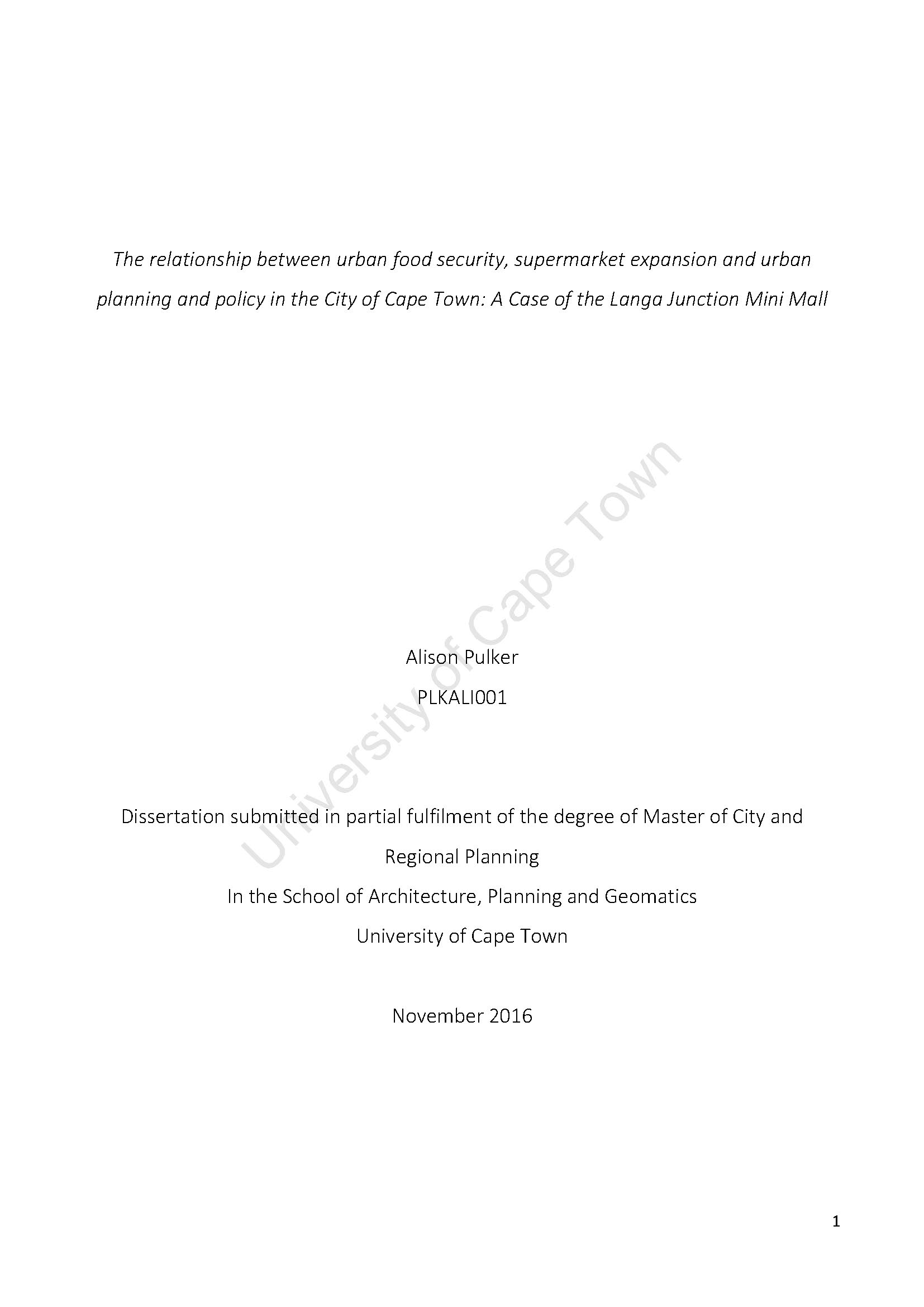– Master Thesis –
For many years, urban food insecurity has been ‘invisible’ to urban planners and policy makers. This is due to the misconception of food insecurity as being primarily a rural issue and attributable to a lack of supply of food; however, it is clear that the issue of urban food insecurity is systemic, embedded in socio-economic and spatial disparities.
Rapid supermarket expansion in low income areas in the City of Cape Town (CoCT), has in many ways limited access to food security, due to the urban poor’s lack of financial access to this food. Through a case study method approach, the area surrounding the Langa Junction Mini Mall was used to explore the effects of supermarket expansion in low income areas on the urban poor’s access to food security. Fieldwork consisting of observations at the Langa Junction Mini Mall, semi-structured interviews with the Langa Junction Mini Mall manager, the Langa Shoprite manager, informal street traders around the Langa Junction Mini Mall and City of Cape Town land use and spatial planners, as well as three focus groups conducted with Langa residents was conducted. The research findings show that supermarket expansion in Langa has drastically reduced the amount of informal street trade which is an important point of access to food security for the urban poor. Therefore, the Langa Junction Mini Mall has had an effect on the way in which the residents access food security. In addition, these findings suggest that the increase in supermarket expansion in the area are contributing to the food desertification of Langa.
Despite an Urban Agriculture Policy, the City of Cape Town has made no spatial or land use interventions in order to alleviate urban food insecurity within the City. Due to the systemic nature of urban food insecurity, interventions must take place at an institutional level in order to appropriately address this issue. This research provides recommendations towards the creation of a Municipal Urban Food Security Policy for the City of Cape Town through the formation of an Urban Food Security Policy Council, an Urban Food Charter as well as an Urban Food Security Strategy. Land use and spatial planning interventions are recommended as ways in which an affordable and equitable urban food system can be created. In addition, this research suggests that there is a need to increase awareness regarding urban food insecurity amongst land use and spatial planners within the City of Cape Town.

